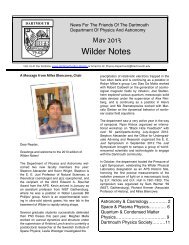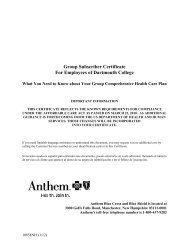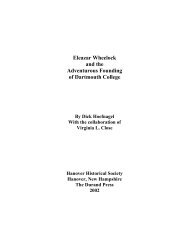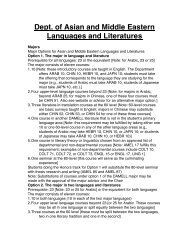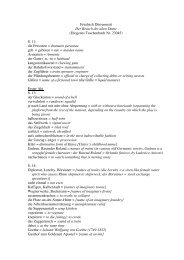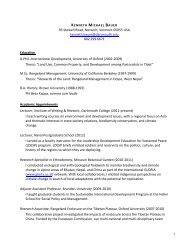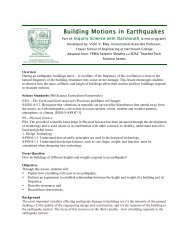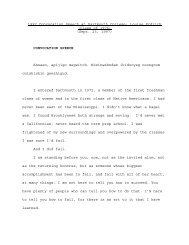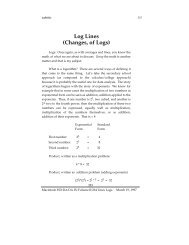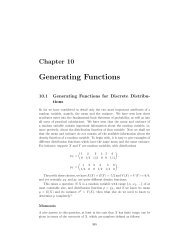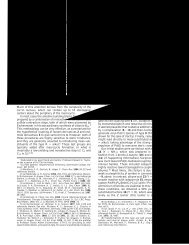A Log Cabin Out of Stone: - Dartmouth College
A Log Cabin Out of Stone: - Dartmouth College
A Log Cabin Out of Stone: - Dartmouth College
You also want an ePaper? Increase the reach of your titles
YUMPU automatically turns print PDFs into web optimized ePapers that Google loves.
Introduction<br />
This thesis is about the process <strong>of</strong> disassembling and reassembling a piece <strong>of</strong><br />
poetry. I have been working with ways to take apart poems and reassemble them such<br />
that they more accessible to new audiences. By applying various translation theories<br />
during this process, I have explored the consequences <strong>of</strong> translating and the implications<br />
<strong>of</strong> a “translated” piece <strong>of</strong> work. The process also involved discovering the relationship<br />
between a translation and its original author, original audience, and new audience.<br />
I focused on Horace’s Epodes. Horace was born in Apulia to a freed slave in 65<br />
BCE, and was educated in both Rome and Athens. At twenty, he joined Brutus’s army<br />
and returned to Rome to discover his father had died and that his land had been<br />
confiscated. Facing poverty, he turned to poetry to earn money. After meeting people in<br />
the Roman circle <strong>of</strong> poets, he was introduced to Maecenas who later became his patron. 1<br />
The Epodes were written early in his career, between 41 and 31 BCE. 2 The work<br />
remains largely mysterious; it is a collection <strong>of</strong> seventeen poems with no clear<br />
organizational principle. In the Epodes, Horace jumps from politics, to love, to sex, to<br />
friendship, to hate. Also, the work does preserve a single metrical form. Horace<br />
combines many different meters throughout the collection, but manages to maintain<br />
iambics in all <strong>of</strong> them. Historically iambic poetry is invective—or angry—poetry. Yet,<br />
so much <strong>of</strong> this collection is not angry, but sad; one naturally questions the thematic<br />
cohesion <strong>of</strong> the group. 3 Certainly there are many poems in this collection that are attack<br />
poetry, but also there are poems about the loss <strong>of</strong> love, the ache <strong>of</strong> love, the search for<br />
1<br />
Cary, M, The Oxford Classical Dictionary, H.J. Rose, H.P. Harvey, A. Souter (Oxford: Clarendon Press,<br />
1949), 438.<br />
2<br />
Cary, 438.<br />
1



